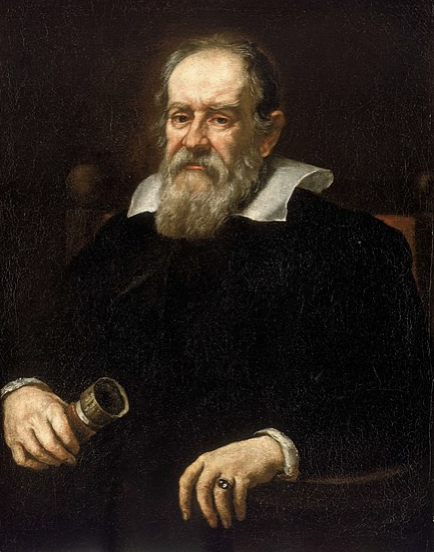
Galileo di Vincenzo Bonaiuti de’ Galilei commonly known as Galileo, was an Italian polymath, born on February 15, 1564 in the city of Pisa in modern day Italy. Using acute observations of the world around him and challenging all conventional assumptions, Galileo was making discoveries that would eventually lay the foundations for modern physics. In 1610, he was peering into the heavens with the newly invented telescope that he improved to view the four largest moons of Jupiter. In 1632, he published his Dialogue Concerning the Two Chief World Systems in which he compared the geocentric and heliocentric versions of the solar system–the two competing paradigms. This was perceived as a violation of the papal order of 1616, prohibiting him from publishing anything that would contradict the Church’s assertion that the earth was the center of the universe.
Galileo was summoned before the Inquisition in February 1633. To escape a sentence of death, the great scientist and intellect was forced to renounce his assertions concerning the heliocentricity of the universe. His book, Dialogue, was placed on the Index of Prohibited Reading where it remained for almost 200 years. Galileo was sentenced to incarceration for life, but the humane and supportive Cardinal Barberini had his sentence commuted to house arrest in Arcetri, near Florence. Galileo died in his 78th year, on January 8, 1642, blind, lonely, and despondent. On November 4, 1992, 350 years after the death of Galileo, Pope John Paul II apologized to Galileo on behalf of the Catholic Church. Paying tribute to Galileo’s observational approach to science, Einstein would later comment:
Propositions arrived at purely by logical means are completely empty as regards reality. Because Galileo saw this, and particularly because he drummed it into the scientific world, he is the father of modern physics–indeed, of modern science altogether.
The shame of the Catholic Church resides in its denial of the truths that Galileo had discovered and its refusal to accept that scientific evidence is infinitely more important than self-serving dogma.
